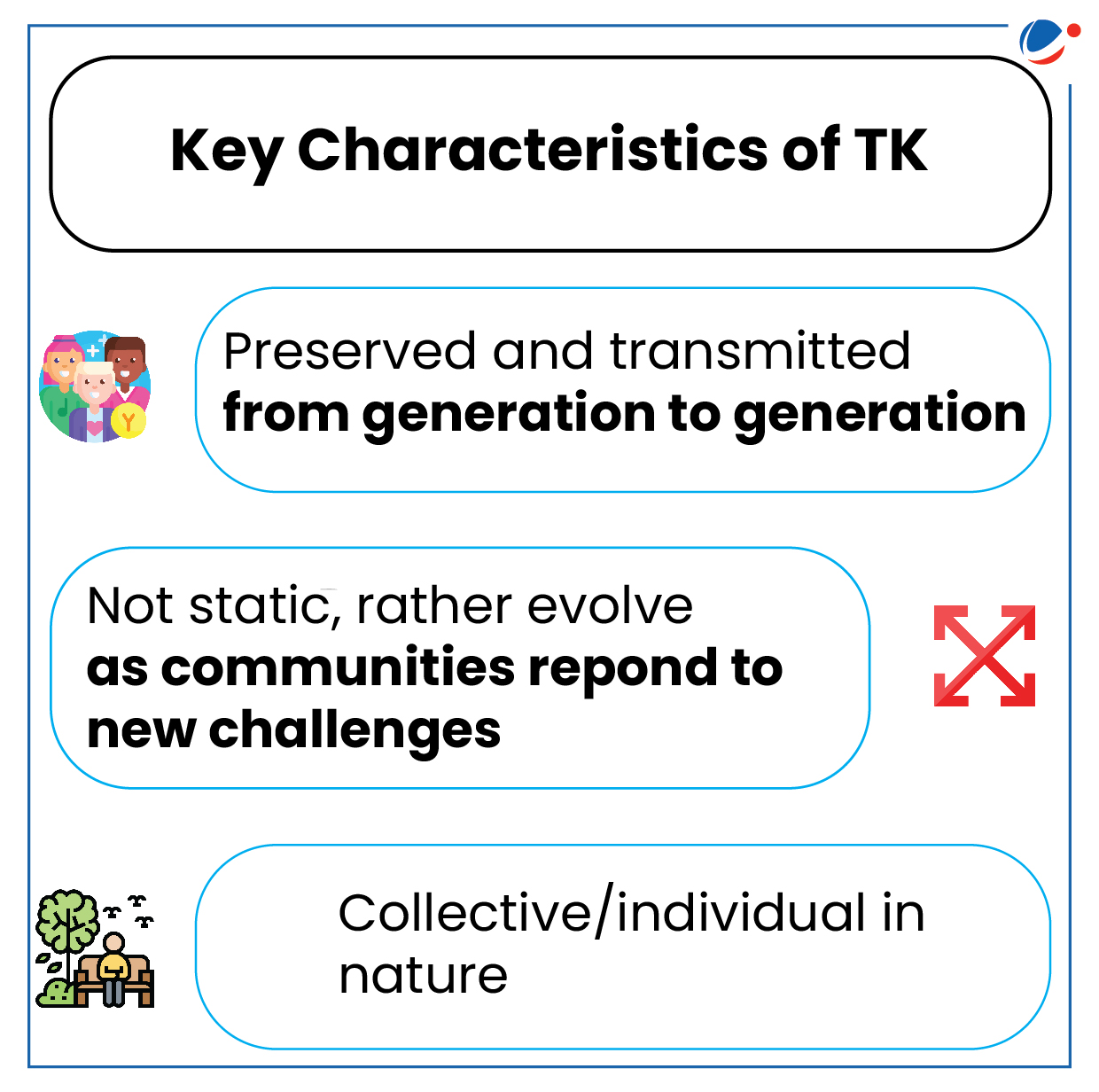Why in the news?
Recently, the World Intellectual Property Organization (WIPO) adopted the Treaty on Intellectual Property, Genetic Resources and Associated Traditional Knowledge.
What are Genetic Resources and Associated Traditional Knowledge?

- Genetic Resources (GRs): Resources that are contained in medicinal plants, agricultural crops, and animal breeds.
- While GRs themselves cannot be directly protected as intellectual property, inventions developed using them can be protected through a patent.
- Traditional knowledge (TK): Knowledge system held by indigenous communities, often relating to their natural environment like Agriculture, scientific, ecological and medicinal knowledge.
- Significance:
- Helps in biodiversity Conservation.
- 80% of the world´s population depends on traditional medicine for its primary health care (WHO).
- Significance:
Challenges associated with India's TK and GRs
- Biopiracy: Exploitation, patenting, and commercialization of TK and GRs by foreign entities without benefit-sharing or recognition of indigenous communities.
- Impact on Farmers: Farmers who developed staple food crops through generations have no effective rights over patented varieties by multinational companies.
- Lack of Documentation: This enhances risk of loss or erosion in transmission of traditional knowledge to younger generations in the face of modernization and cultural change.
- Inadequate Global Legal Framework: To prevent misappropriation, ensure benefit-sharing, and recognize indigenous community rights.
- Insufficient Conservation of biodiversity: Increasing environmental degradation and climate change threaten habitats and ecosystems that harbour genetic resources.
Measures by Government to Protect India's TK and GRs
|
Way Forward
- Establishing agricultural research programmes and centres for ex situ and in situ conservation of plant varieties and plant genetic resources, and transferring good practices and varieties throughout the country.
- Setting up or promoting herbal gardens of traditional medicinal plants.
- Ensuring adequate income to the community experts on traditional knowledge.
- Incorporating TK as part of the curriculum for schools, universities and research centres.
- Enhancing traditional medicine and healing arts in state-run hospitals.
- Recognizing leaders, experts and innovations in TK in various fields by providing incentives.








